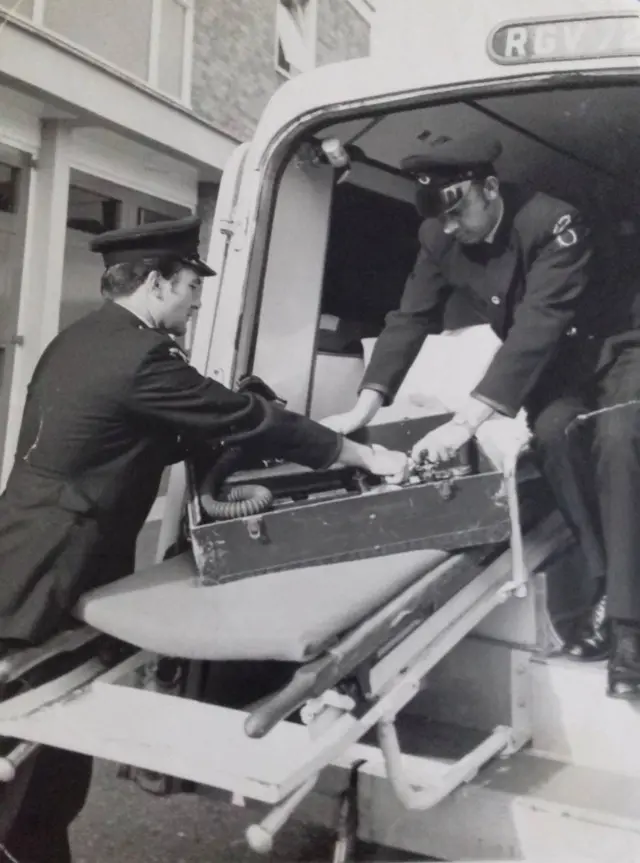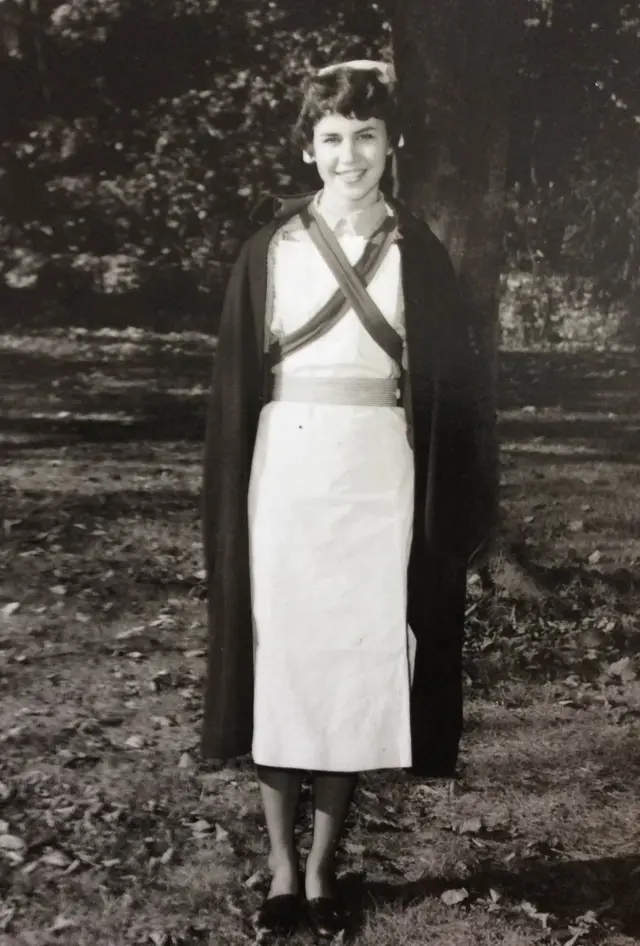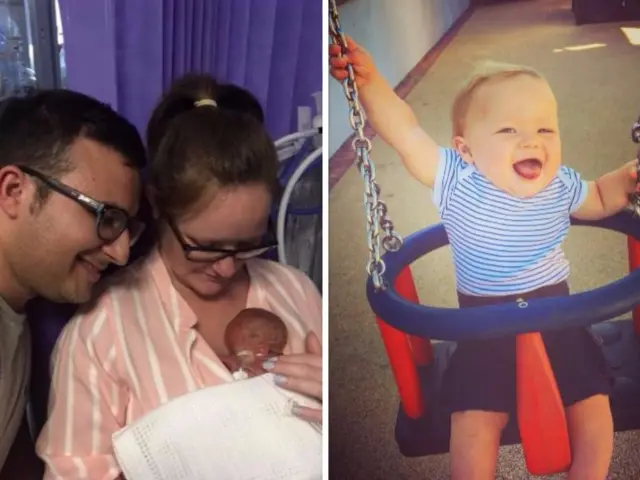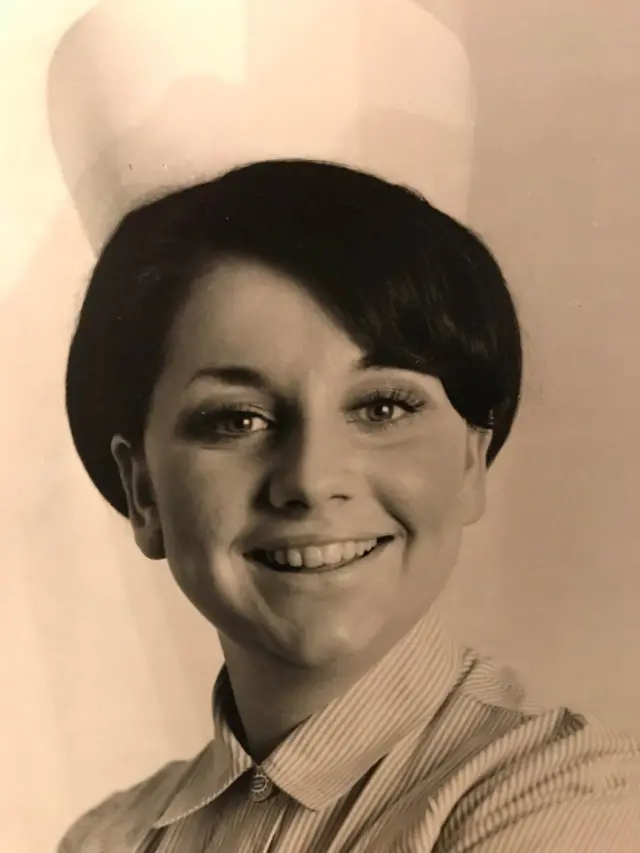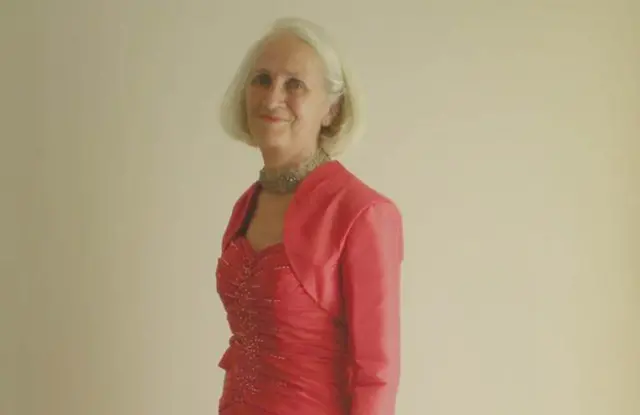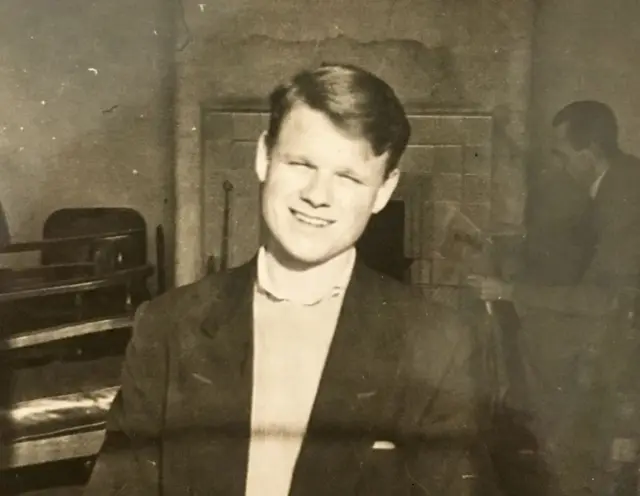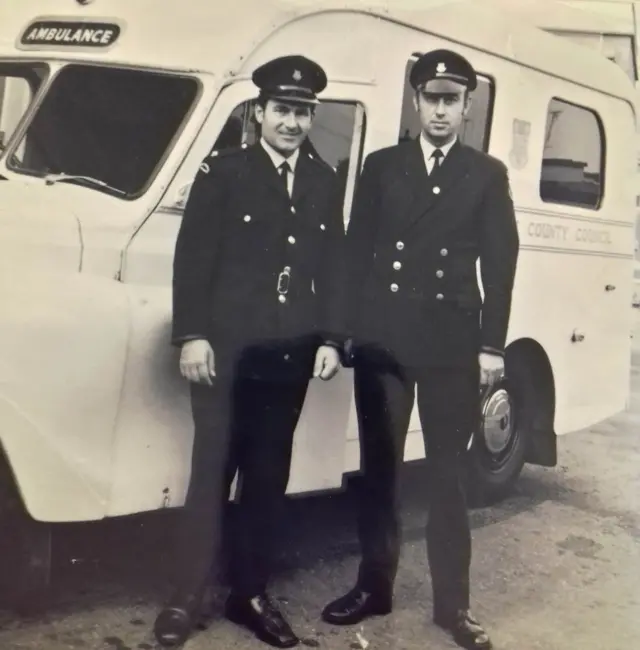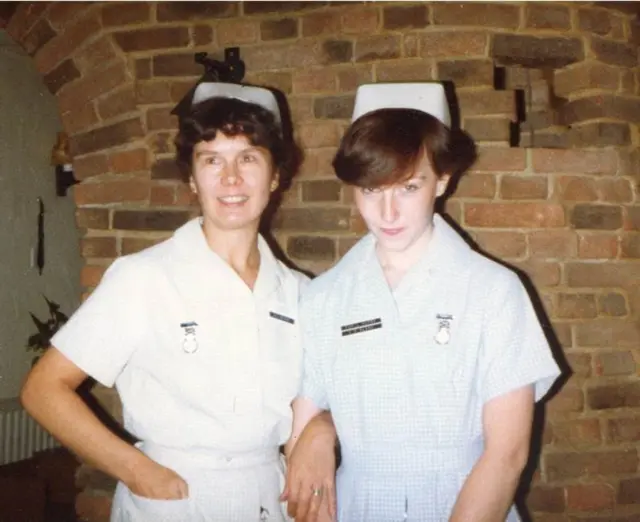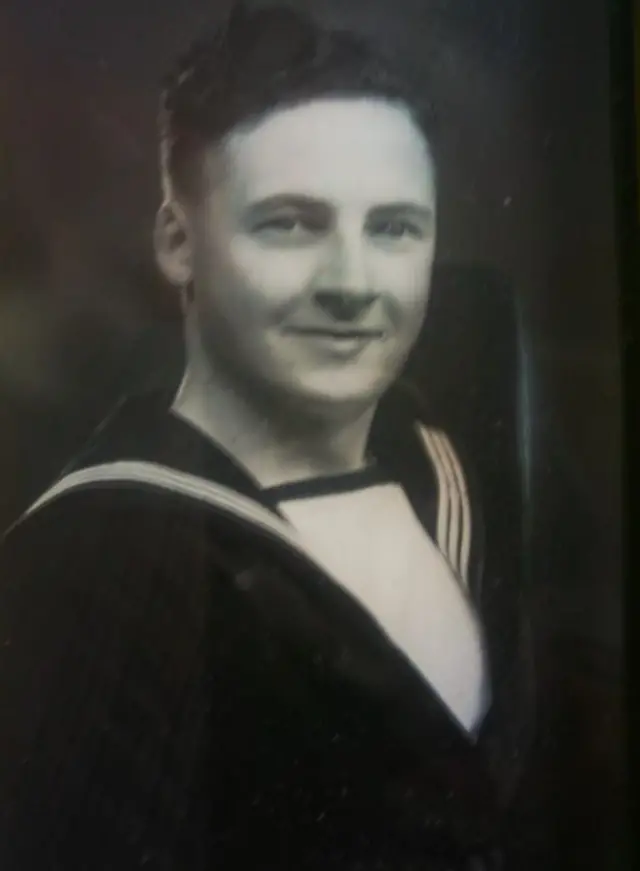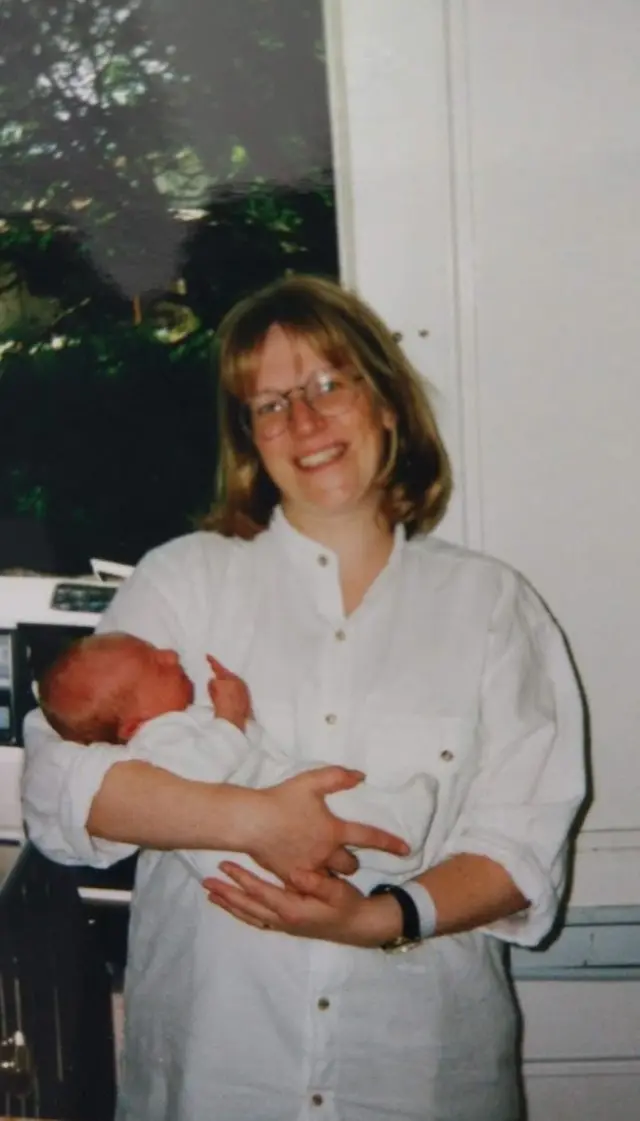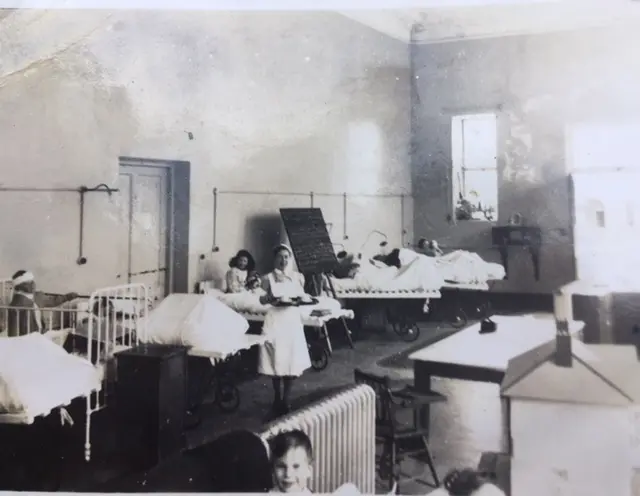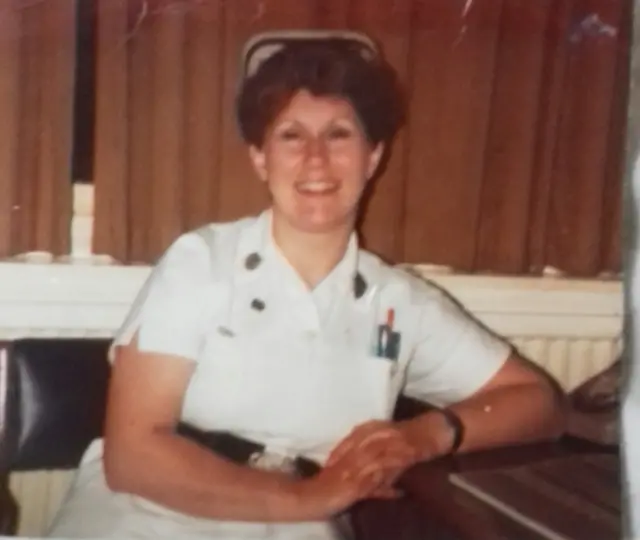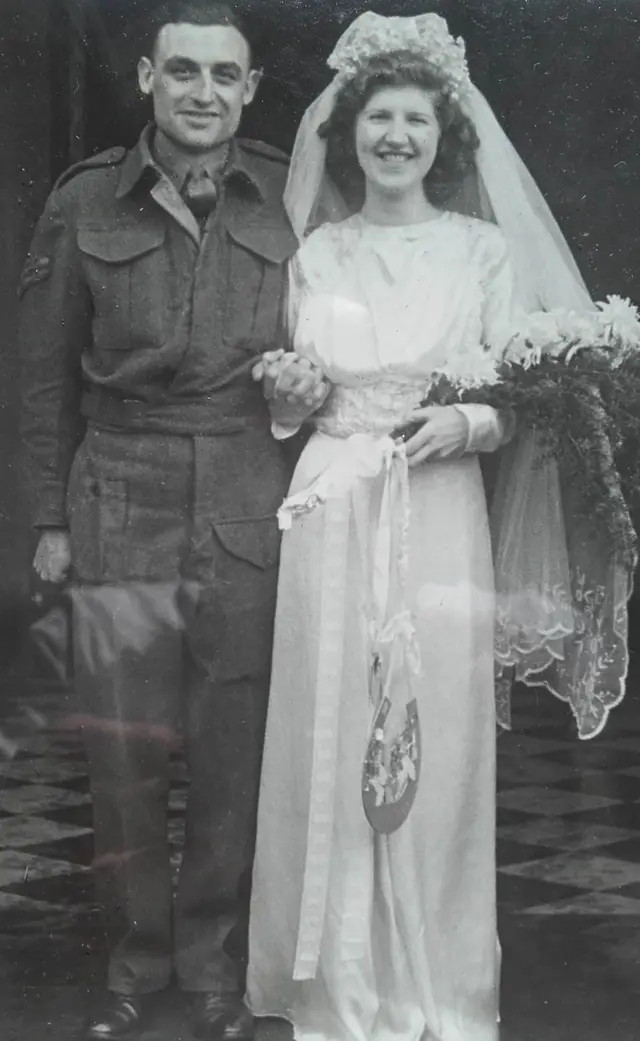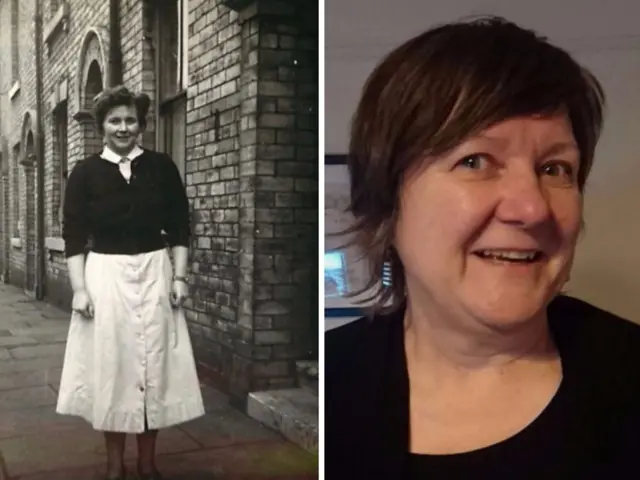NHS at 70: 'My son gave my daughter his kidney'published at 14:51 BST 13 July 2018
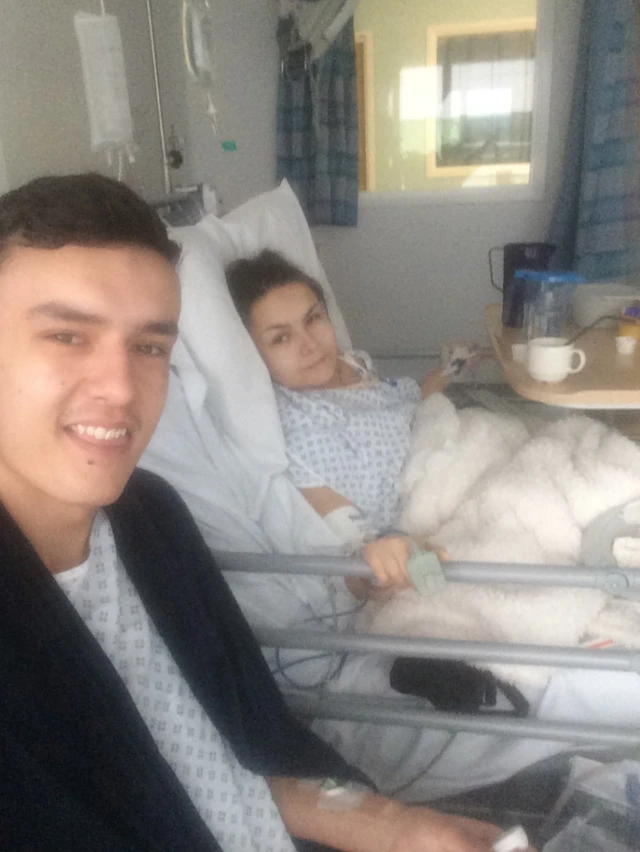 Image source, Louise Gallis
Image source, Louise GallisAdam and Emma together for the first time after the transplant
Louise Gallis from Gornal, West Midlands, is full of praise for the Living Donor team at the Queen Elizabeth Hospital, Birmingham, after they carried out a kidney donation last February from her son Adam, 23, to her daughter Emma, 29.
"This was such a brave and wonderful thing for Adam to do. Emma can never thank him enough.
“Emma was born with only one kidney which later stopped working properly. Adam's donation has saved her from a lifetime of dialysis.
"Initially me and my husband were seeing if we were matches but Adam said 'what about me’.
“We have a different blood group to Emma but it turned out he was the perfect match.
“He decided to step up although he was a rugby player for the county and by doing this he has sacrificed his rugby career.
“I’m such a proud mum."
The new kidney has given Emma a new lease of life and she has returned to work as a librarian.
